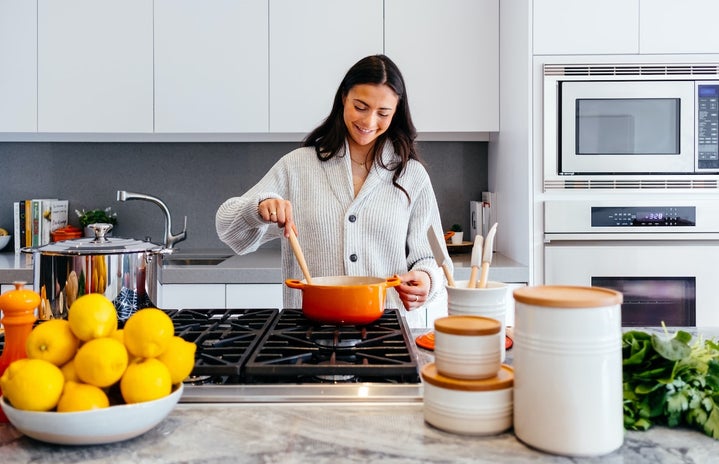We all know ‘that girl’. You might even be one yourself. You know, the girl that wakes up at the crack of dawn, eats a super healthy breakfast, journals, does her morning yoga, cleans her whole apartment, and does a whole leg day at the gym before it turns 10AM. She generally just has her sh*t together. This rebranded Tumblr girl has taken over TikTok, with viral videos on ‘how to become that girl’ cropping up left right and centre – and they’re selling like hotcakes. What began as a self-care trend, now often leads to impractical, idealistic goals which encourages you to adopt a certain lifestyle which can be detrimental to your health.
We are living in an era of romanticisation, adopting this method in order to believe it will solve all our problems. This is not the case. With this ideology, comes toxic and unrealistic pressure to live and breathe a certain way, tapping into hustle culture glossed over with a feminine spin. This internalised capitalism attempts to teach us that we should feel guilty for not accomplishing enough. There is a perception that you should be doing more, even if you think you are doing enough. We live in a society where the younger generation of women are constantly comparing ourselves to others – the way we look, the way we eat and the way we conduct our daily lives.
We must strive to be HER, the model woman of our generation … but is ‘that girl’ even a real person, or just a toxic ideal drawn from consumerism?
The curse of ‘the viral trend’
We have always been taught not to believe everything we see on social media. And yes, whilst that is true, sometimes you can’t help yourself – especially when your FYP is full of people sharing their supposed ‘morning routine’ planned and documented by the hour. Yet, this perception is unrealistic, and in fact quite problematic… and there’s the key word. perception. We are only shown what we perceive to be ‘that girl’, the best moments and snapshots of someone’s day.
So why are we still so obsessed with her?
There lies the problem. TikTok harbours many videos which are supposedly there to promote wellness and empower women, but many do the opposite and can lead to harmful effects on one’s self-esteem. When you are exposed to an obscene number of curated videos, the viral aspect of a trend begins to take over, and you start to feel like everyone is doing it so you should too. This can be particularly damaging for viewers as ‘that girl’ is expected to meet certain logistical criteria. Don’t get me wrong, I highly doubt any girl contributing to this trend is actively trying to harm anyone, and it’s great to see empowered women living their best lives, but being aesthetic doesn’t always equal success and happiness.
So, is it all a scam?
As mentioned previously, this trend can be damaging for some viewers more than others. And one way in which is occurs is through consumerism culture. We are shown that having a gym membership, or owning expensive, custom-made candles, or drinking from fancy coffee machines are all sure-fire ways of becoming ‘that girl’. In reality, many people do not have the financial ability to afford this type of lifestyle. The pressure to have certain items purely for validation purposes feeds into this culture of materialism, coercing you into either unwarranted purchases or shame disguised as wholesome content.
Similarly, the obsession with unrealistic wellbeing and having the perfect body may undoubtedly prompt viewers into unhealthy eating habits and overall harmful relationships with food. This then contributing towards the toxic obsession surrounding the desired aesthetic of having a flat stomach, the shiniest hair, or the most flawless skin. Just like the annual occurrence of the ‘summer body’ trend, women are being manipulated into conforming to a certain body type to fit a certain lifestyle.
The Verdict
The ‘that girl’ trend isn’t in its entirety bad – however – the perceptions and expectations surrounding this unrealistic aesthetic are harmful. On one hand, it can be empowering to see how others romanticise their lives, even acting as empowering to some. In some ways, we should all strive to be ‘her’, but instead this as a set image for everyone, ‘that girl’ should be personal and custom-made for every individual.
By all means, journal, make a green smoothie, learn how to make Emily Mariko’s salmon rice, drink lemon water, or do none at all. As long as you know that where you are now is good enough, and that you should only work toward being the best version of yourself.


